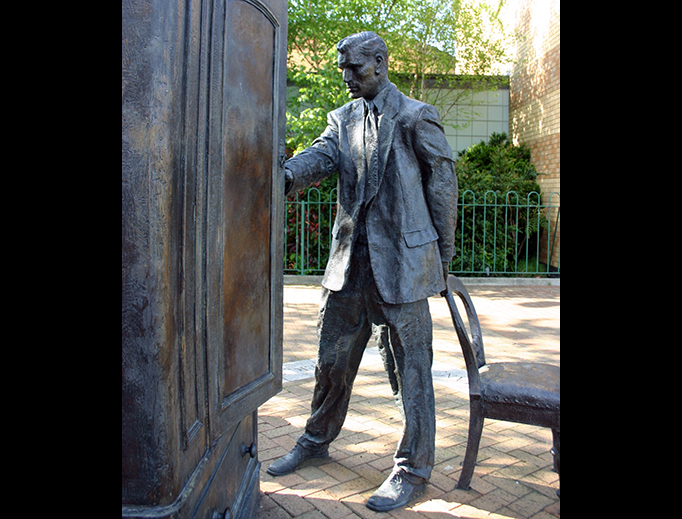- Feb 5, 2002
- 182,410
- 66,009
- Country
- United States
- Gender
- Female
- Faith
- Catholic
- Marital Status
- Married
- Politics
- US-Others
Was it his upbringing in Belfast, or something else entirely?
The great Anglican apologist C. S. Lewis (my favorite writer) was raised in Belfast. I believe it’s “hearsay”, but for what it’s worth, I once heard Catholic philosopher and apologist Peter Kreeft in a radio interview speak about a discussion between Lewis and J. R. R. Tolkien (of Lord of the Rings fame), in which Lewis was asked why he hadn’t become a Catholic.
Lewis is reputed to have replied (paraphrase): “If you had grown up in Belfast, you’d understand and wouldn’t ask me that question.” Tolkien also is reported to have referred tongue-in-cheek to Lewis’ “Ulsterior motives” for not becoming Catholic.
If this is a true report, I think it is at least admirable of Lewis to honestly admit his biases (we all have them), and to acknowledge that they had a sort of irrational but profound effect on his position. Several Lewis biographers allude to very similar themes. The question comes up, among other reasons, particularly because there are reports that C. S. Lewis was very close to conversion to Catholicism especially around 1950.
For example, Joseph Pearce, in his book, C. S. Lewis and the Catholic Church (San Francisco: Ignatius Press, 2003) stated:
Continued below.

 www.ncregister.com
www.ncregister.com
The great Anglican apologist C. S. Lewis (my favorite writer) was raised in Belfast. I believe it’s “hearsay”, but for what it’s worth, I once heard Catholic philosopher and apologist Peter Kreeft in a radio interview speak about a discussion between Lewis and J. R. R. Tolkien (of Lord of the Rings fame), in which Lewis was asked why he hadn’t become a Catholic.
Lewis is reputed to have replied (paraphrase): “If you had grown up in Belfast, you’d understand and wouldn’t ask me that question.” Tolkien also is reported to have referred tongue-in-cheek to Lewis’ “Ulsterior motives” for not becoming Catholic.
If this is a true report, I think it is at least admirable of Lewis to honestly admit his biases (we all have them), and to acknowledge that they had a sort of irrational but profound effect on his position. Several Lewis biographers allude to very similar themes. The question comes up, among other reasons, particularly because there are reports that C. S. Lewis was very close to conversion to Catholicism especially around 1950.
For example, Joseph Pearce, in his book, C. S. Lewis and the Catholic Church (San Francisco: Ignatius Press, 2003) stated:
Peter Kreeft in a written interview (Los Angeles Lay Catholic Mission, October 2003), observed:In summary, Lewis’ religious upbringing seems to have been characterized by an inherited anti-Catholicism, whether implicit or explicit ...
Continued below.

Why C.S. Lewis Never Became a Catholic
Was it his upbringing in Belfast, or something else entirely?

